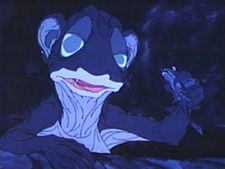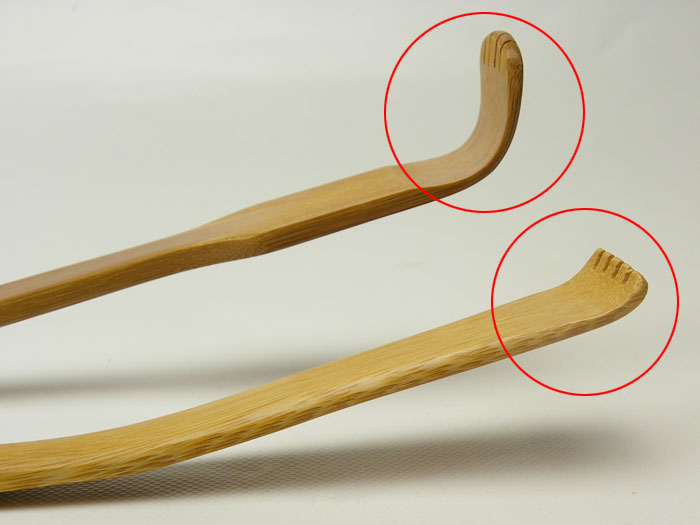In English, the corrupted hobbit-creature Gollum is so named because of the "horrible swallowing noise in this throat." This is illustrated especially well in Peter Jackson's LOTR films, I think, wherein Smeagol periodically coughs out his more sinister moniker, "Gollum." This seems to happen when he is about to give in to his darker nature.

In Japanese, Gollum's name is translated as 「ゴクリ」, which is a gulping, swallowing sound. It's a little more literal than its English counterpart, as "Gollum" isn't a conventional word or sound in English and 「ゴクリ」 is in Japanese, but think this is still a nice way of rendering his name.
It appears that the Seta Teiji, who translated Tolkien's the Hobbit and Lord of the Rings into Japanese, got creative with a number of Middle Earth's proper nouns, and Gollum isn't the only name to have been adapted for Nihongo.
Some of those other translations may be a nice topic to explore in the future.
Image Source: Wikipedia (Rankin & Bass animation)


